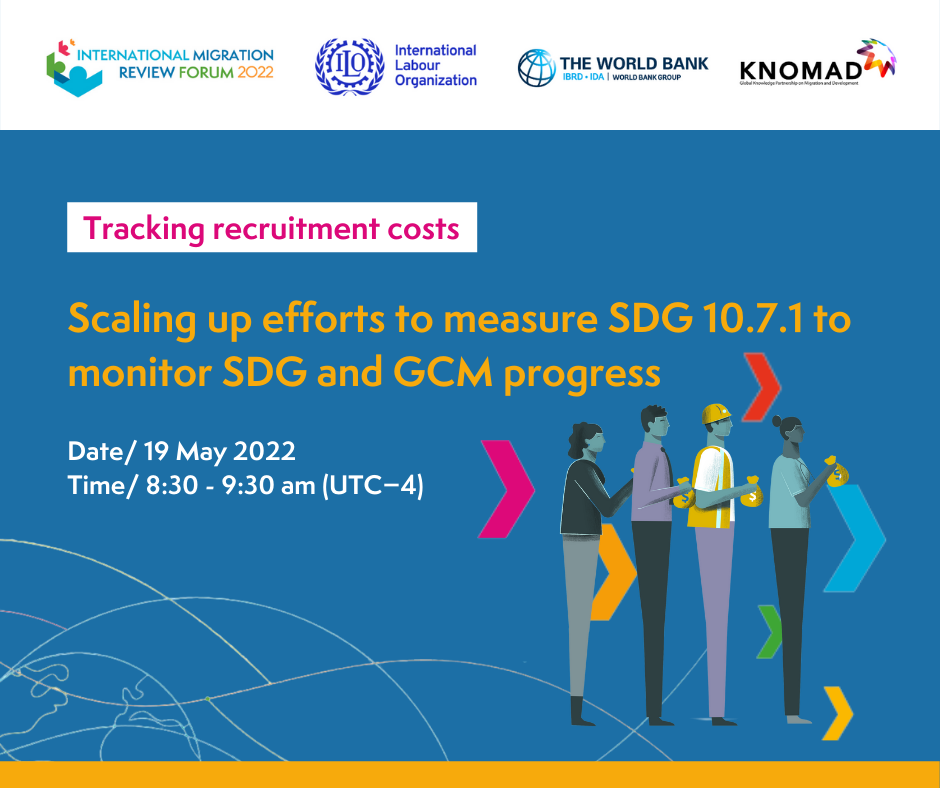Events
Tracking recruitment costs: scaling up efforts to measure SDG 10.7.1 to monitor SDG and GCM progress
The high recruitment fees and related costs incurred by migrant workersto access jobs abroad are serious impediments to migrants’ enjoyment of human and labour rights and migration development outcomes. This is also recognized as a critical factor that heightens workers’ exposure to trafficking and forced labour.
Reliable, comparable data on recruitment costs are essential to inform effective policy making and legislative reform which protects workers, fosters labour market functioning and enhances the positive contribution of migration. The SDG Recruitment cost indicator, or SDG 10.7.1, is therefore critical for the achievement of protection of workers and promotion of save orderly and regular migration globally and hence contributing to GCM progress.
The event will focus on the importance of reliable data on SDG 10.7.1 for effective policy making and concrete action on the ground, and to monitor and promote the objectives of GCM and relevant SDGs. High level speakers from countries of origin and destination, and from different perspectives, will be invited to share views, experiences, challenges and opportunities for collecting data for SDG 10.7.1. following the endorsed data collection methodology, supported by ILO and WB- KNOMAD, as custodian agencies. The event will reflect the point of view of different stakeholders: experts’ statisticians, policy makers, workers’ and employers’ representatives, the recruitment industry and private sector – and share knowledge, as well as practical experience to encourage countries in the production of data and devise of policies on this subject.
Zoom link: bit.ly/IMRF-ILO-WB
